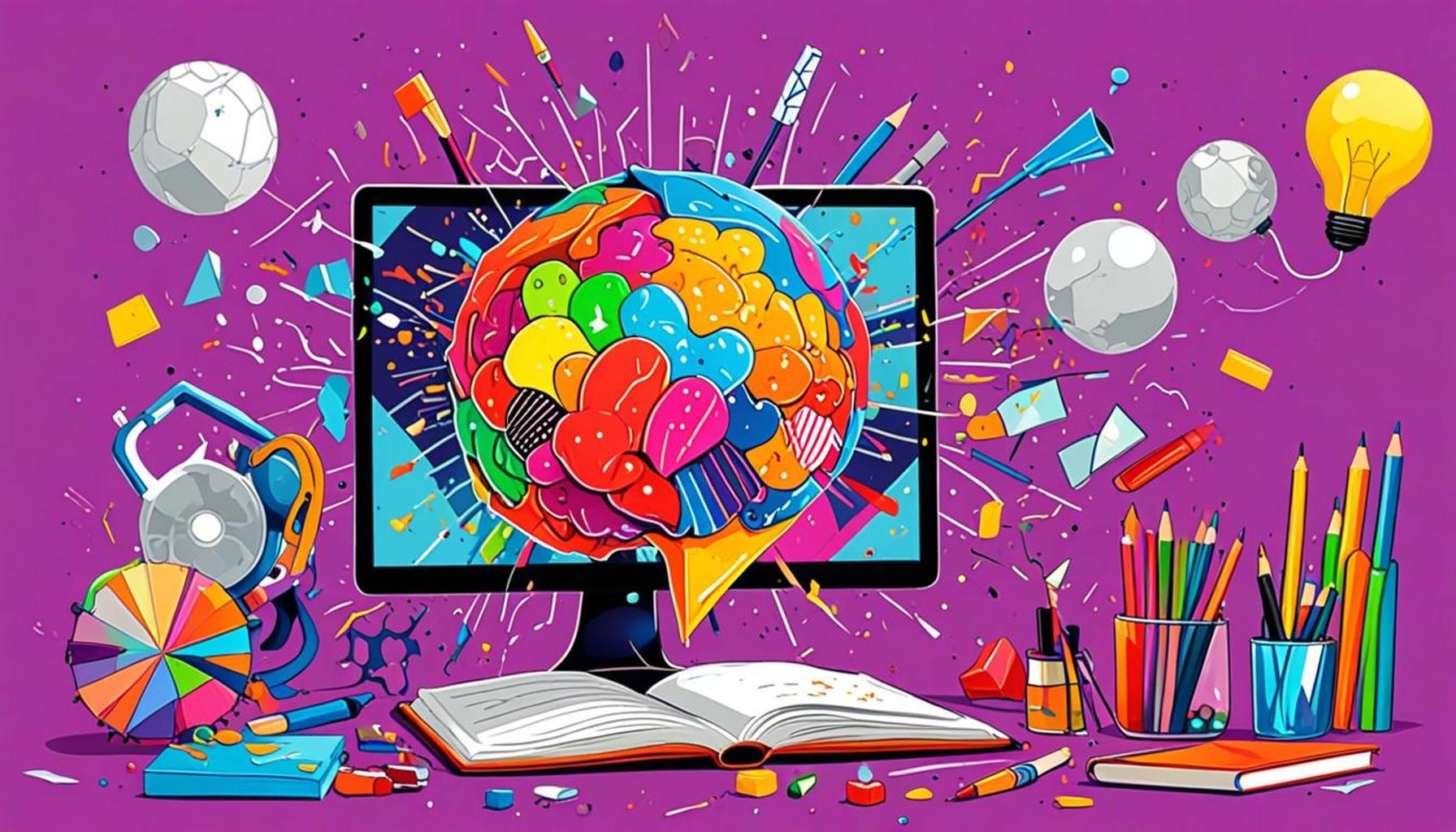Exploring the Role of Reflective Practice in the Ability to Learn from Failures and Successes

The Power of Reflective Practice
In a rapidly evolving world, the ability to learn from both failures and successes proves indispensable. Among the myriad of tools available for personal and professional growth, reflective practice stands out as a transformative means of enhancing one’s journey. This practice, deeply rooted in self-examination, encourages individuals not just to reminisce but to analyze their choices, behaviors, and the resulting impacts on their lives.
Understanding the importance of self-awareness is fundamental in this process. By recognizing personal strengths and weaknesses, individuals can make informed decisions that align with their goals. For example, an entrepreneur in Lagos might realize that their strength lies in product innovation but faces challenges in financial management. Acknowledging this allows them to seek the necessary resources or training to improve their weak points.
Enhancing Critical Thinking Skills
Critical thinking is another vital component of reflective practice. Individuals revisit past decisions, evaluating what worked, what didn’t, and why. Let’s consider a small business owner who launched a new food product. After analyzing customer feedback and sales data, they may discern that while the product was innovative, marketing efforts fell short in reaching the target audience. This realization could prompt them to reassess their strategies, using social media outlets more effectively to engage potential buyers.
Formulating Adaptive Strategies
Through reflective practice, individuals also create adaptive strategies that leverage lessons learned from their experiences. In Nigeria, where entrepreneurs frequently encounter obstacles such as economic fluctuations and infrastructural challenges, this adaptability is crucial. For instance, if a fashion designer experiences a dip in sales due to increased competition, reflecting on their marketing techniques and client interactions can help them devise new promotional campaigns or diversify their product offerings to better meet customer demand.
In the context of Nigeria’s vibrant entrepreneurial landscape, the importance of reflective practice becomes even more pronounced. Entrepreneurs often face setbacks ranging from funding challenges to regulatory issues. Those who engage in reflective practices can transform these hurdles into stepping stones for success. By actively analyzing what went wrong, identifying effective strategies that have yielded positive results in the past, and implementing necessary changes, these business owners position themselves for future achievements.

As we explore further into the nuances of reflective practice, the pivotal role it plays in navigating the complexities between success and failure becomes clear. This exploration not only highlights the mechanisms that foster growth and resilience but also empowers individuals to take control of their learning journey, ultimately laying the groundwork for long-term success in various aspects of life.
RECOMMENDED: Check out this similar article
The Mechanisms of Reflective Practice
At its essence, reflective practice serves as a bridge between experience and insight, enabling individuals to decipher the lessons embedded within their journeys. The process involves critically assessing both outcomes—successes and failures— to cultivate a deeper understanding of their implications on personal and professional development. In Nigeria, where the entrepreneurial spirit is marked by ambition and frequent challenges, the ability to assess experiences meaningfully becomes vital for sustained growth.
Identifying Patterns in Outcomes
One of the key functions of reflective practice is to uncover patterns in achievements and setbacks. Many entrepreneurs might not realize that periodic reflection can reveal consistent themes that affect their business trajectories. For instance, a Nigerian tech startup that finds repeated issues with customer retention may identify that their service lacks personalization. Recognizing this pattern can guide the startup to enhance customer feedback mechanisms and tailor their offerings, ensuring better alignment with user expectations.
The Feedback Loop Concept
Creating a feedback loop through reflective practice also significantly boosts self-improvement. When entrepreneurs or professionals assess their practices regularly, they not only identify shortcomings but gather insights that help them refine their methods. For example, consider a graphic designer who consistently seeks client feedback after project completions. By analyzing both positive and negative feedback, they can adjust their design strategies in future projects. Their ability to iterate based on past reflections may well position them ahead in a competitive market.
Engaging in Reflective Journaling
To operationalize reflective practice, many find it beneficial to keep a reflective journal. This simple yet effective tool helps individuals document their thoughts, feelings, and insights about various experiences. Here’s how it can be valuable:
- Structured Thinking: Writing things down offers a visual framework for discerning complex emotions and thoughts.
- Emotional Processing: Journals provide a safe space to explore feelings tied to both successes and failures, fostering emotional intelligence.
- Accountability: Regular entries can enhance accountability, motivating individuals to track their progress over time.
For many Nigerian entrepreneurs, engaging in reflective journaling allows them to contextualize their experiences in a rapidly changing environment, offering a reference point to review the evolution of their ideas and decisions. By looking back, they don’t just acknowledge what they’ve experienced but gain foresight for future opportunities and obstacles.
Building on the nuances of reflective practice reveals how it equips individuals with the tools necessary for navigating the ups and downs of life’s journey. By integrating this approach into daily routines, learners can fortify their ability to adapt and thrive, transforming failures into learning opportunities and successes into stepping stones for further accomplishments.
| Advantages of Reflective Practice | Impact on Learning |
|---|---|
| Enhanced Self-Awareness | Reflective practice fosters a deeper understanding of one’s own strengths and weaknesses, promoting personal growth. |
| Improved Decision-Making | By analyzing past experiences, individuals can make more informed choices, leading to better outcomes in future endeavors. |
Reflective practice is a key aspect in navigating the complex landscape of learning from both failures and successes. It enables individuals to leverage their experiences, transforming situations that might be perceived as setbacks into valuable lessons. One of the core benefits of engaging in this practice is the enhanced self-awareness it cultivates. When individuals take the time to reflect, they begin to identify their patterns of behavior, emotional responses, and operational efficiency – thereby becoming more attuned to their personal learning styles.Moreover, reflective practice significantly contributes to improved decision-making capabilities. By taking a structured approach to retrospectively examine outcomes, learners refine their ability to assess situations critically. This empowers them to devise strategies that are informed by past experiences, whether those were successful ventures or times of struggle. This continuous cycle of reflection and learning not only promotes personal advancement but also nurtures a broader organizational culture that values transparency and growth.As one delves deeper into the topic, it becomes clear that the integration of reflective practice into educational and professional frameworks yields profound dividends, making it an integral component for anyone eager to harness the power of their experiences.
CHECK OUT: Click here to explore more
Navigating Resources Through Reflective Practice
As Nigerian entrepreneurs traverse the often turbulent waters of business, the role of reflective practice extends beyond personal insights to encompass the effective utilization of available resources. By systematically examining past successes and failures, individuals can pinpoint not only what worked but also how they can leverage both human and material resources more efficiently in their future endeavors.
Leveraging Knowledge Networks
A significant facet of reflective practice is the ability to tap into existing knowledge networks. In Nigeria, where community ties and professional associations are strong, reflecting on interactions within these networks can yield invaluable insights. For example, a smallholder farmer who decentralized their farming methods might notice through reflection that collaborating with fellow farmers increased crop yields. By sharing successes and learning from setbacks within these networks, entrepreneurs can adapt strategies that are culturally relevant and environmentally sustainable, enhancing their overall productivity.
Integrating Mentorship and Coaching
Reflective practice also lends itself to the integration of mentorship and coaching. Engaging with seasoned professionals allows for guided reflection where mentors can help mentees dissect past experiences. A young entrepreneur in Lagos, for instance, might reflect on a failed product launch with their mentor’s assistance. They can analyze what misjudgments were made—from market research to product design—and formulate a more effective strategy for future launches. This collaboration not only fosters personal growth but also builds a cumulative knowledge base that can be shared with others, enhancing the broader entrepreneurial ecosystem.
Applying Reflection in Educational Contexts
Educational institutions in Nigeria can play a pivotal role in promoting reflective practice among students preparing to enter the workforce. Programs emphasizing the importance of reflective learning engage students in critical assessments of their projects, internships, and even groupwork. For instance, a university student studying business management could maintain a reflective portfolio that chronicles her experiences working with local NGOs. By documenting her challenges and achievements, she not only learns from her academic and experiential endeavors but also positions herself favorably in the job market, showcasing adaptability and critical thinking skills to potential employers.
- Exposure to Diverse Perspectives: Reflective practice encourages students to seek feedback from peers and instructors, leading to a richer understanding of their work.
- Facilitating a Culture of Innovation: Engaging in reflection can foster a mindset attuned to innovation, where learning from failures propels creative solutions.
- Building Resilience: Encounters with failure, when viewed through the lens of reflective practice, can cultivate resilience, an essential trait in today’s dynamic work environments.
The adoption of reflective practices in educational settings not only fosters individual growth but also nurtures a generation of learners capable of adapting to the demands of an ever-evolving marketplace. As they grapple with their experiences through reflective lenses, they emerge not just as professionals but as contributors to a culture of continuous improvement and innovation within the Nigerian economy.
CHECK OUT: Click here to explore more
Conclusion
In summary, the exploration of reflective practice reveals its vital role in empowering both individuals and communities to learn from their failures and successes. As Nigerian entrepreneurs and students navigate their unique paths, applying reflective techniques enables them to draw meaningful lessons from their experiences, ultimately fostering resilience and adaptability in a rapidly changing landscape. Engaging with knowledge networks and seeking mentorship enriches this process, allowing for the exchange of ideas and best practices that can lead to collective growth.
Moreover, reflective practice serves as a fundamental aspect of education that prepares the next generation of leaders to face challenges with innovation and confidence. By encouraging critical thinking and self-assessment, educational institutions can cultivate a culture where students are not afraid to experiment, make mistakes, and learn from them. This culture of continuous improvement is advantageous not only for individuals but for the larger Nigerian economy, paving the way for a future filled with innovative endeavors and sustainable business practices.
As we move forward, it is essential for entrepreneurs, educators, and policymakers alike to recognize the transformative power of reflection. Investing time in reflection can multiply the impact of both successes and failures, providing a powerful framework for ongoing learning and professional development. Embracing this practice is not just about enhancing personal skills; it is about cultivating a resilient, innovative, and interconnected community ready to tackle the complexities of the marketplace.


